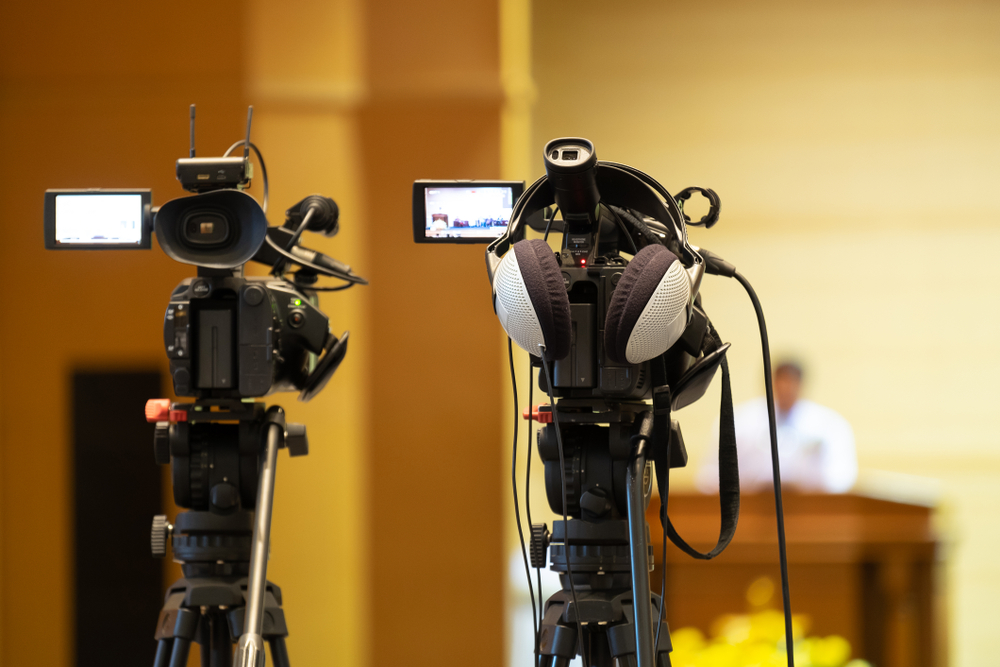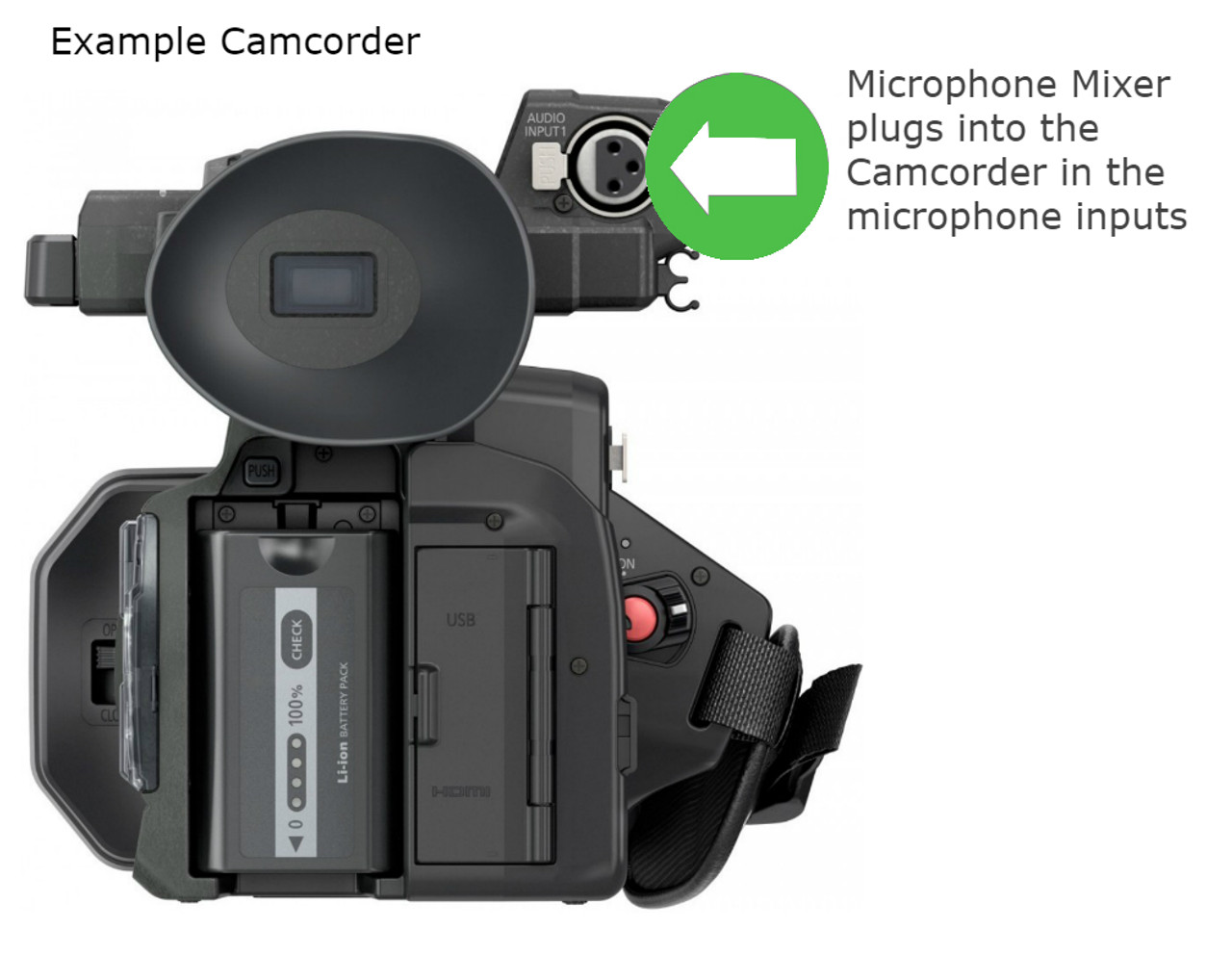Legal video depositions: Are they admissible in court?
Wiki Article
The Relevance of Lawful Video Depositions in Modern Legal Providers: What You Ought to Know
Legal video clip depositions have actually ended up being vital in today's legal landscape. They provide a multidimensional sight of witness statements that conventional transcripts merely can not match. By catching both non-verbal and verbal interaction, these depositions improve the overall understanding of a witness's reliability. The efficiency of video depositions pivots on various variables, consisting of compliance with lawful standards and ideal practices. Discovering these aspects discloses their true significance in contemporary lawful servicesWhat Are Legal Video Clip Depositions?
Legal video depositions function as an important device in the lawsuits process. They include videotaping witness testimonies in a video clip layout, capturing both non-verbal and spoken communication. This method enables lawyers to document the attitude, expressions, and reactions of witnesses, offering a richer context for the statement. Typically carried out in a regulated setting, these depositions are led by attorneys who ask concerns while a stenotype reporter records the dialogue. The resulting video can be vital for test prep work, as it enables lawyers to examine the reputation of witnesses and refine their techniques. Furthermore, lawful video clip depositions can be made use of in numerous lawful contexts, varying from civil disputes to criminal cases. The auditory and visual elements of video depositions enhance the presentation of evidence, making it a vital element in the contemporary legal landscape. In general, they contribute significantly to the effectiveness and efficiency of legal proceedings.
Benefits of Video Clip Depositions Over Standard Approaches
Video clip depositions offer various advantages compared to standard approaches of taking witness testaments. One substantial advantage is the ability to catch both audio and aesthetic elements, providing a more comprehensive document of the witness's declarations. This dual layout improves clearness and allows legal specialists to reference details subtleties during test preparation. Additionally, video clip depositions promote remote involvement, making it much easier for witnesses who might be not available for in-person appearances due to geographical restraints or health and wellness issues.Moreover, video depositions can quicken the general deposition process, lowering the moment and costs linked with travel and logistics. They also boost availability, as tape-recorded depositions can be conveniently shared among legal groups and referenced at any moment. This ease contributes to much better instance administration and preparation. Generally, video depositions stand for a modern, reliable method to collecting witness statements, straightening with the progressing needs of the legal career.The Function of Body Movement and Tone in Testimonies

In legal video depositions, body movement and tone play vital roles in conveying a witness's reputation and credibility. Nonverbal cues can offer understandings right into a witness's emotion, influencing exactly how their testament is viewed. Recognizing the impact of these elements is necessary for lawyers and jurors alike when evaluating the reliability of a statement.
Nonverbal Communication Insights
While spoken interaction is frequently stressed in lawful testimonies, nonverbal cues such as body language and tone play a necessary duty in conveying integrity and feeling. Viewers of depositions might keep in mind that a witness's stance, motions, and face expressions can substantially affect assumptions of integrity. For circumstances, regular eye contact might signify self-confidence, while staying clear of stare might recommend dishonesty or discomfort. Likewise, the tone of voice-- its pace, volume, and pitch-- can give feelings of genuineness or unpredictability. Legal professionals have to be attuned to these nonverbal signals, as they frequently supply vital context that complements talked words. Recognizing these subtleties can boost the efficiency of depositions and influence the end result of legal proceedings.Psychological Tone Impact
The emotional tone conveyed throughout legal testimonies considerably impacts just how a witness is perceived. Body language, singing inflections, and faces play crucial roles fit the narrative of a testament. A witness exhibiting self-confidence through constant eye get in touch with and a tranquil tone can impart a feeling of reliability and involvement. On the other hand, indicators of stress and anxiety, such as fidgeting or an unsteady voice, may bring about uncertainty regarding their account. The subtleties of psychological expression can influence the interpretation of realities, making it vital for lawyers to acknowledge these signs. In video depositions, the aesthetic and acoustic parts combine, highlighting the value of emotional tone in communicating genuineness and reliability within the legal process.Reputation and Credibility
An essential factor in establishing integrity and trustworthiness during statements hinges on the witness's body movement and intonation. Observers typically count on non-verbal signs-- such as eye contact, position, and gestures-- to analyze a witness's genuineness. For example, a witness who preserves eye contact and shows open body language may be viewed as even more sincere and trusted than one who stays clear of eye get in touch with or appears blocked. In addition, tone of voice plays an important function; a stable, tranquil tone can strengthen the trustworthiness of the testament, while variations in pitch or quantity may raise uncertainties. Inevitably, the combination of body language and singing tone greatly influences just how a witness's declarations are gotten and interpreted in a legal context.Ideal Practices for Carrying Out Video Depositions
Conducting video clip depositions needs cautious planning and execution to assure a clear and reliable discussion of statement. It is crucial to choose a silent, well-lit place to minimize disturbances and secure optimum video top quality. The equipment needs to be evaluated ahead of time, consisting of video cameras, microphones, and lights, to avoid technological issues throughout the deposition.Next, parties included must examine the layout and procedures ahead of time, ensuring that everybody understands their functions. The deponent needs to be briefed on the procedure, consisting of exactly how to react clearly and concisely.Additionally, preserving a professional attitude you can look here throughout the session is crucial. This consists of avoiding talking over one another and verifying that all questions are routed appropriately. Lastly, it is critical to tape the deposition in a format that permits for easy playback and evaluation, maintaining the honesty of the testimony for future usage.Legal Factors To Consider and Conformity Issues
How do legal considerations and compliance issues influence the effectiveness of video depositions? Attorneys should navigate a complicated landscape of guidelines, making certain that video clip depositions abide by jurisdictional guidelines and requirements. Compliance with laws concerning privacy, approval, and videotaping approaches is crucial. Acquiring specific approval from all celebrations entailed is necessary to avoid lawful repercussions.Additionally, the admissibility of video clip proof in court can pivot on conformity with procedural demands. Guaranteeing that the equipment utilized fulfills technological criteria is additionally vital, as bad quality can threaten the deposition's reliability.Moreover, lawyers must understand any kind of specific state regulations that regulate video depositions, as these can vary substantially. Failing to address these factors to consider can not just jeopardize the stability of the deposition but also affect the general situation method, eventually impacting the client's legal end results.Just How Video Depositions Effect Court Assumption
While video clip depositions can offer as effective devices in lawful proceedings, their influence on court understanding is substantial. The auditory and aesthetic elements of video recordings supply jurors with a go more comprehensive understanding of witness behavior, integrity, and psychological reactions. This multimedia approach can enhance the jurors' ability to assess the reliability of testament contrasted to traditional text-based transcripts.Moreover, video depositions enable jurors to observe body movement, tone of voice, and faces, every one of which can impact their interpretation of the witness's statements. The visibility of a witness on screen can humanize them, cultivating compassion and link, which may sway jurors' viewpoints. Conversely, a witness that appears evasive or undependable on video clip might cause negative assumptions that influence a jury's choice. Inevitably, the vibrant nature of video depositions plays a crucial function fit exactly how jurors analyze proof and reach their verdicts.The Future of Video Clip Depositions in Legal Method
As innovations in technology remain to reshape the lawful landscape, the future of video clip depositions is poised for significant evolution. Developments such as man-made intelligence, online truth, and improved video conferencing tools are expected to streamline the deposition process and boost ease of access. Lawyers may utilize AI-driven analytics to assess witness reliability and situation strength more effectively.Moreover, the integration of digital fact might enable juries to experience immersive simulations of depositions, providing much deeper context and understanding. In addition, the pattern toward remote depositions is likely to linger, supplying better versatility for customers and attorneys alike.As remote work becomes increasingly stabilized, video depositions will likely become basic practice, lowering expenses and time constraints related to typical techniques. In general, these technical improvements guarantee to enhance the performance, efficiency, and accessibility of video clip depositions in legal practice, inevitably transforming exactly how legal experts prepare for test.Regularly Asked Concerns
Just How Much Do Lawful Video Clip Depositions Normally Cost?

Can Video Clip Depositions Be Made Use Of in Any Type Of Kind Of Case?
Video clip depositions can be utilized in different sorts of cases, consisting of civil, criminal, and family members law. Their adaptability allows attorneys to existing witness testaments great site efficiently, adjusting to the specific requirements of various lawful situations.What Devices Is Required for a Video Deposition?
To conduct a video clip deposition, crucial equipment includes a high-quality video camera, microphone, lighting, and a trustworthy recording tool. Additionally, a computer with modifying software program might be necessary for post-production and formatting the final video.Exactly how Lengthy Does a Regular Video Clip Deposition Last?
A typical video deposition lasts between two to four hours, depending on the complexity of the case and the number of concerns positioned. Prolonged sessions might happen, however breaks are normally included for individual convenience.

Are Video Depositions Admissible in Court?
Video depositions are typically acceptable in court, offered they stick to legal standards and guidelines of evidence. Their use enhances clarity and preserves witness testimony, assisting in the judicial procedure throughout hearings and trials. Legal video depositions have become essential in today's lawful landscape. In addition, lawful video depositions can be used in various legal contexts, varying from civil disagreements to criminal situations. Furthermore, video depositions facilitate remote engagement, making it less complicated for witnesses that may be unavailable for in-person looks due to geographical restraints or health and wellness issues.Moreover, video depositions can expedite the total deposition procedure, decreasing the time and costs linked with travel and logistics. Guaranteeing that the equipment made use of satisfies technical standards is additionally essential, as poor top quality can weaken the deposition's reliability.Moreover, attorneys have to be conscious of any particular state legislations that regulate video depositions, as these can differ significantly. In addition, the pattern toward remote depositions is most likely to persist, supplying higher adaptability for clients and attorneys alike.As remote job becomes significantly normalized, video clip depositions will likely become typical method, reducing expenses and time constraints connected with traditional techniques.Report this wiki page